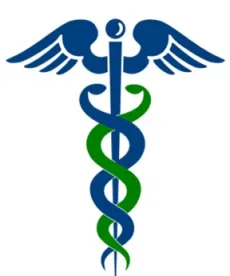This Legal Update summarizes some of the significant OIG Work Plan updates released for April, May, and June 2018.
Health Care Coalitions' Partnerships with Non-Hospital-Based Facilities in Emergency Preparation Efforts (Added May 2018)
Health Care Coalitions are groups of local, public and private health care and responder organizations that collaborate to prepare for emergencies. Health Care Coalitions are tasked with creating jurisdictional emergency response plans that consider the needs of vulnerable populations, including those with mental illness. Many non-hospital-based health care facilities, such as mental health centers, lack comprehensive emergency response plans. In response, CMS implemented new emergency preparedness requirements that apply to all facilities receiving Medicare or Medicaid reimbursement. HHS will be auditing Health Care Coalitions for how well they have integrated non-hospital-based facilities into their emergency preparedness plan. All Health Care Coalitions should review their emergency preparedness plan to evaluate how they ensure “a successful whole community response” by integrating non-hospital-based facilities.
Compliance with Medicare Requirements for Noninvasive Home Ventilators (Added May 2018)
Noninvasive home ventilators (NHVs) offer a variety of operating modes which makes them more expensive than other respiratory machines. The NHV can operate in the following modes: traditional ventilator, respiratory assist device (RAD), and basic continuous positive airway pressure (CPAP). For NHVs to be covered by Medicare, they must be reasonable and necessary for diagnosis or treatment of illness or injury or to improve the functioning of a malformed body member. If the beneficiary’s condition is severe enough, an NHV may be reasonable and necessary. However, in some cases, a less expensive device such as a RAD or CPAP may be sufficient. Medicare billings for NHVs have increased since their introduction and therefore HHS will be auditing facilities receiving Medicare or Medicaid reimbursement for NHV claims. HHS will be evaluating whether claims for NHVs were medically necessary for beneficiaries’ treatment. Additionally, HHS will be auditing whether NHV claims complied with Medicare payment and documentation requirements. Facilities receiving Medicare or Medicaid reimbursement should review their NHV billing practices and address situations where using a less costly respiratory machine, such as a RAD or CPAP, would be sufficient.
Medicare Part B Outpatient Cardiac and Pulmonary Rehabilitation Services (Added May 2018)
Medicare Part B covers outpatient cardiac and pulmonary rehabilitation services when they are medically necessary and properly documented. The OIG has previously identified claims for such services that did not meet all of the requirements. The OIG will continue to evaluate specific claims to determine compliance with the requirements, and will conduct a general evaluation on whether potential risks for noncompliance exist on a broad scale.
Medicare Part B Payment for End-Stage Renal Disease Dialysis Services Report (Added June 2018)
End-stage renal disease (ESRD) is typically covered by Medicare Part B as outpatient services. Prior investigation by the OIG revealed inappropriate payments for ESRD services, including services that were not actually furnished, improper or missing documentation, lack of medical necessity, and services not properly authorized by a physician. The OIG will continue to investigate this matter, and additionally evaluate individual claims for compliance with Medicare requirements.
Review of Home Health Claims for Services With 5 to 10 Skilled Visits (Added June 2018)
The OIG will review Home Health Agency (HHA) documentation of skilled service visits to determine compliance with Federal guidance amid concerns of proper application of Low Utilization Payment Adjustments (LUPA). Generally, if an HHA provides four or fewer covered visits from a skilled service provider in an episode, LUPA will result in the HHA being paid a standardized per-visit payment based on visit type. Once a fifth visit is provided, an HHA will instead receive a full 60-day payment based on episode of care. The OIG review will focus on HHA claims with 5 to 10 skilled visits in a payment episode in which the beneficiary was discharged home. HHA’s should ensure skilled service visits meet conditions for payment and are supported by adequate documentation, especially those claims with 5 to 10 skilled visits in a payment episode.
Inappropriate Denials of Services and Payment in Medicare Advantage Plans, Appeals and CMS Oversight (Added June 2018)
Capitated payment models are based on payment per person rather than payment per service provided. A central concern about the capitated payment model used in Medicare Advantage is the incentive to inappropriately deny access to, or reimbursement for, health care services in an attempt to increase profits for managed care plans. The OIG will conduct medical record reviews to determine the extent to which beneficiaries and providers were denied preauthorization or payment for medically necessary services covered by Medicare. Furthermore, the OIG will examine national trends and CMS’ oversight of denied care and payments, including CMS’ efforts to monitor and address inappropriate denials and the extent to which denials have been appealed and overturned. Medicare Advantage Plans should ensure access and payment for all medically necessary services for beneficiaries, and monitor and respond to claim denials overturned upon appeal.
Additional Areas of Focus
Other areas of focus of the OIG in April, May, and June are as follows:
-
The impact of authorized generics on Medicaid drug rebates;
-
An analysis of CMS’s contingency planning for IT system updates to meet mission functions and federal requirements;
-
An analysis of specialty drug pricing and reimbursement in Medicaid;
-
Monitoring Medicare payments for clinical diagnostic laboratory tests; and
-
Ensuring dual-eligible beneficiaries’ access to drugs under Medicare Part D.





 />i
/>i

